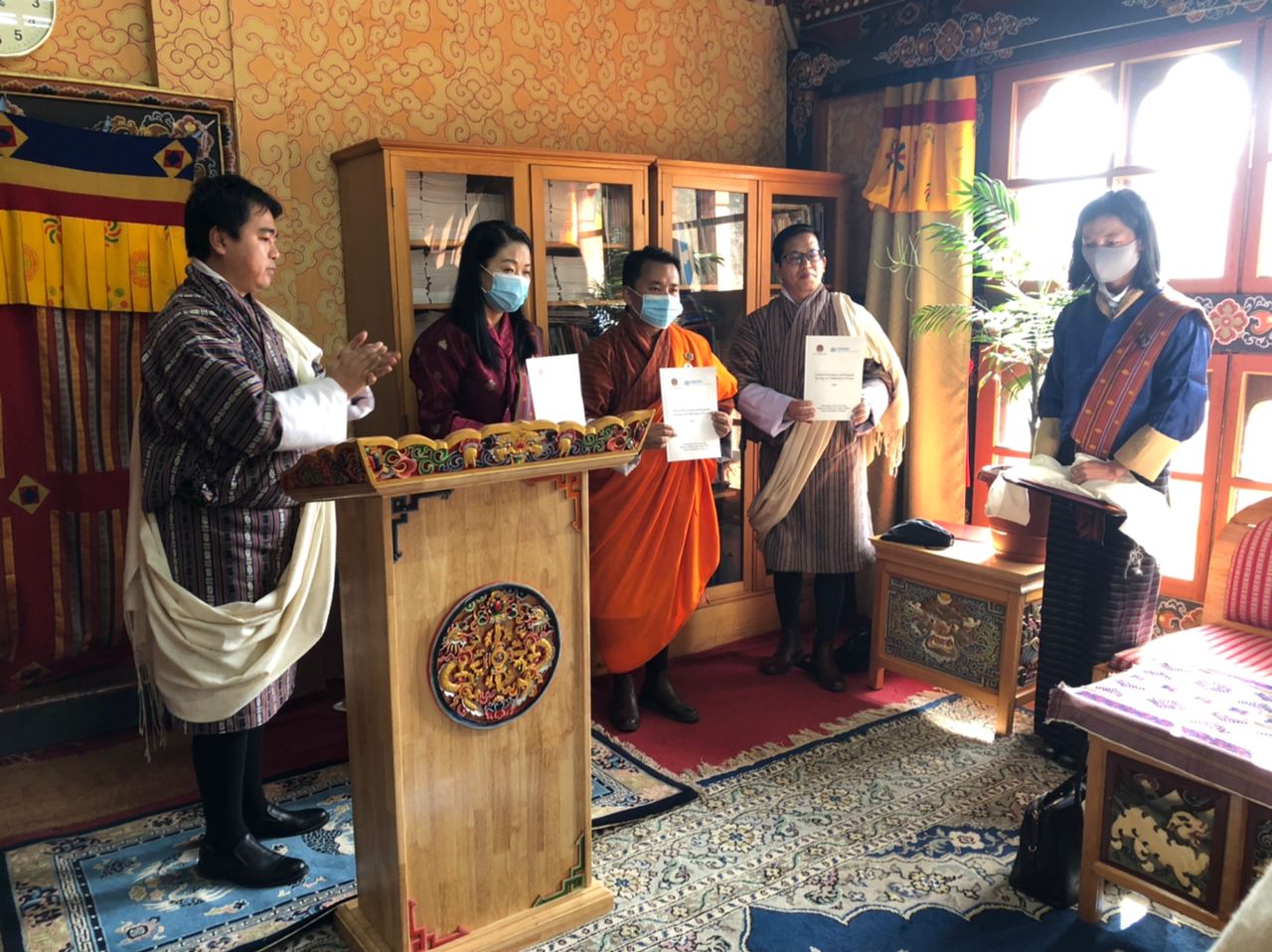
Bhutan has witnessed a rapid growth and surged commercial transactions with increased movement of our people in search of economic opportunities, domestically and globally. It is eminent that these groups of vulnerable people are safeguarded against any form of exploitation and victimization. With the COVID 19 creating more economic challenges and vulnerabilities, Trafficking in Persons (TIPs) is a growing concern for Bhutan. The major concern for Bhutan in relation to TIP is the increasing number of Bhutanese seeking overseas employment and the possibility of them falling prey to the traffickers.
DLO with assistance from UNODC has been striving to prevent, combat and eliminate this heinous crime from the country through various programs including awareness programs and capacity building of the frontline responders, prosecutors, and the judiciary. So far, awareness has been created to over 8000 targeted audiences such as students, teachers, youths, taxi drivers and individuals working in Drayangs, officials from government, local governments, CSOs and private sectors. In the field of capacity development, 295 officers from the law enforcement agencies were trained on TIP law enforcement techniques and 344 people from various stakeholders including local government leaders, CBSS-MSTF volunteers, front line health workers and bench clerks from dzongkhag courts were also trained on the TIP SOP. In addition, 72 officials from the Judiciary, mostly being the Hon’ble Judges have been trained based on Training Module on TIP for the Judiciary in Bhutan.
We are also able to amend the definition of Trafficking in Persons in the Penal Code of Bhutan in line with the Palermo Protocol as one of the significant achievements which is expected not only to deter the heinous crime, but also ensure justice for the victims.
Additionally, to ensure that trafficking in person is addressed in a holistic and meaningful manner, the Department of Law and Order under the Ministry of Home and Cultural Affairs with financial and technical assistance from United Nations Office on Drugs and Crime, developed the National Prevention and Response Strategy on Trafficking in Persons-2021 incorporated with the action plan for next three years. Coinciding with an auspicious day on 12th January 2022 the National Prevention and Response Strategy 2021 is being launched by His Excellency, Minister, Ministry of Home and Cultural Affairs at the MoHCA conference hall in a small ceremony adhering to strict COVID-19 protocols.
This Strategy document will also help uphold the constitutional mandate enshrined in the in its Article 9 (Sec 17 and Sec18) which states that “The State shall endeavour to take appropriate measures to eliminate all forms of discrimination and exploitation against women including trafficking, prostitution, abuse, violence, harassment and intimidation at work in both public and private spheres” and “The State shall endeavour to take appropriate measures to ensure that children are protected against all forms of discrimination and exploitation including trafficking, prostitution, abuse, violence, degrading treatment and economic exploitation” respectively.
Therefore, the National Prevention and Response Strategy, 2021 is a critical document that will go a long way in addressing the issue of trafficking in persons for now and into the future.
